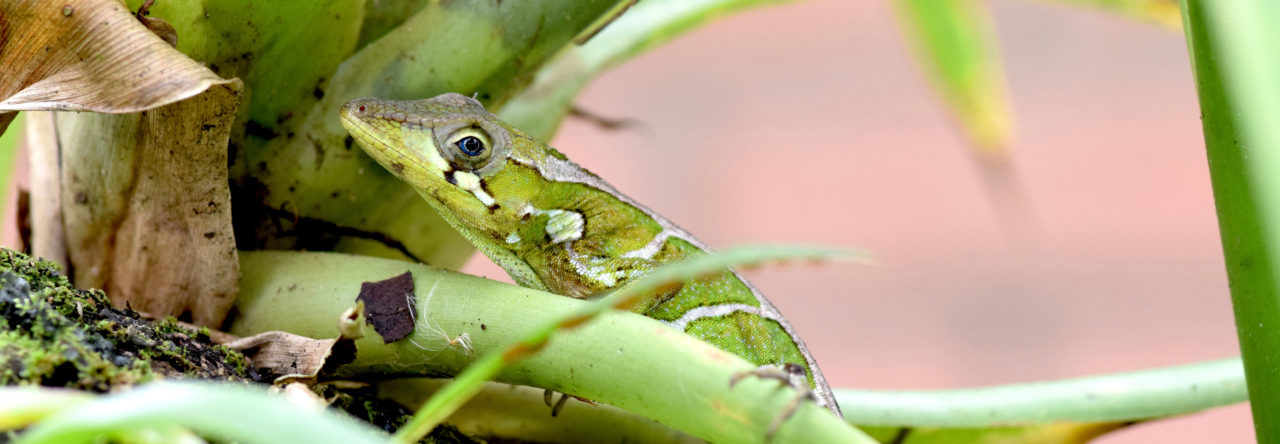
Two anoles duking it out. Photo from sciencesource.com
Give the elaborate and charistmatic behaviours of our favourite lizards — anoles — many researchers have attempted to piece apart the intricacies of anole social dynamics. In a recent study in Zoology, Glenn Borgmans (University of Antwerp) tests whether dominant adult male American green anoles (A. carolinensis) – dominant in relation to other males – are actually at an advantage, for example by establishing priority access to food or other resources, or if risks associated with being the big boss in town outweigh any perceived benefits, like an increased likelihood of injury due to aggressive male-male interactions. You can read all about it here!
Abstract
Male Anolis carolinensis lizards will fight and form social dominance hierarchies when placed in habitats with limited resources. Dominance may procure benefits such as priority access to food, shelter or partners, but may also come with costs, such as a higher risk of injuries due to aggressive interaction, a higher risk of predation or a higher energetic cost, all of which may lead to an increase in stress. While most research looks at dominance by using dyadic interactions, in our study we investigated the effect of dominance in a multiple male group of A. carolinensis lizards. Our results showed that dominant males in a multiple male group had priority access to prey and potential sexual partners but may run a higher risk of predation. We could not confirm that dominant males in a multiple male group had a higher risk of injuries from aggressive interactions or a higher energetic cost by being dominant. Overall our results seem to indicate that dominant male A. carolinensis lizards in a multiple male group obtain clear benefits and that they outweigh the disadvantages.

Dominant lizards ate more food items (left; A) and hid less (right; B) than more submissive individuals.
Borgmans, G., Van den Panhuyzen, S. and Van Damme, R., 2020. The (dis) advantages of dominance in a multiple male group of Anolis carolinensis lizards. Zoology, 139, p.125747.
- Do Bigger Anoles Have More Diverse Parasites? Not in Brazilian Anolis fuscoauratus - May 28, 2020
- What Role Do Chemicals Play in Anole Social Interactions? - May 27, 2020
- Hurricane-blown Anoles are a NY Times Cartoon! - May 20, 2020


Leave a Reply